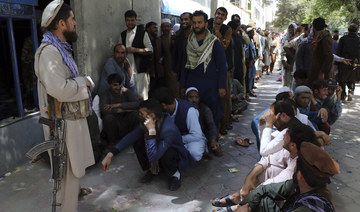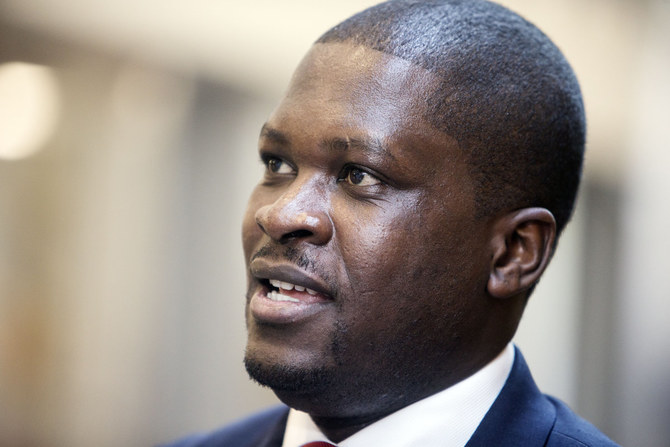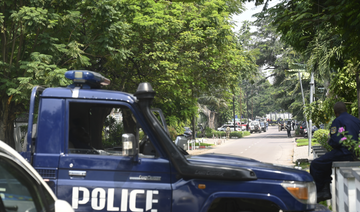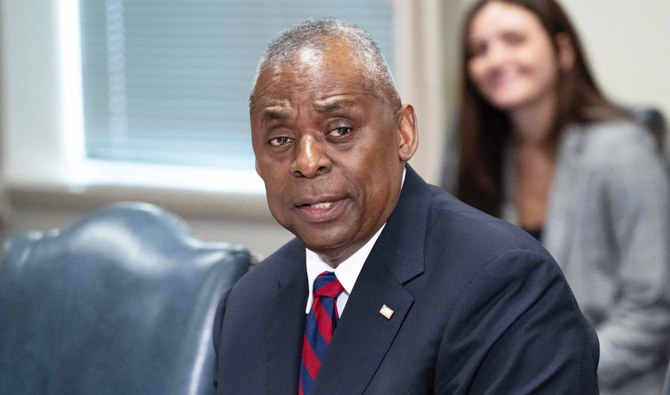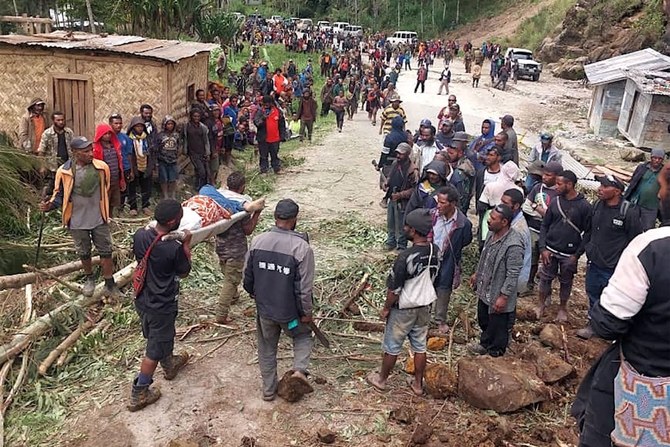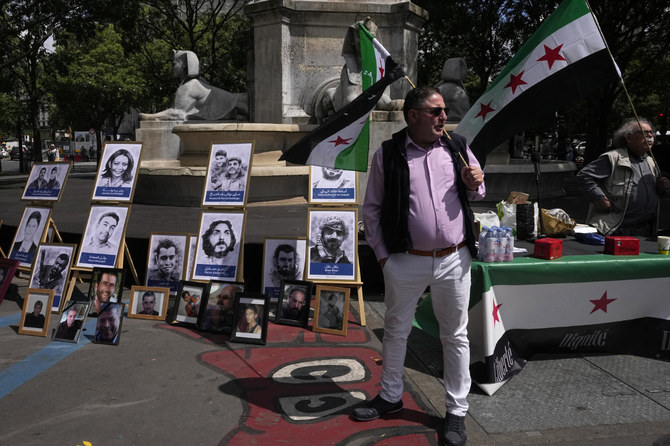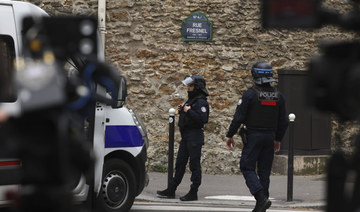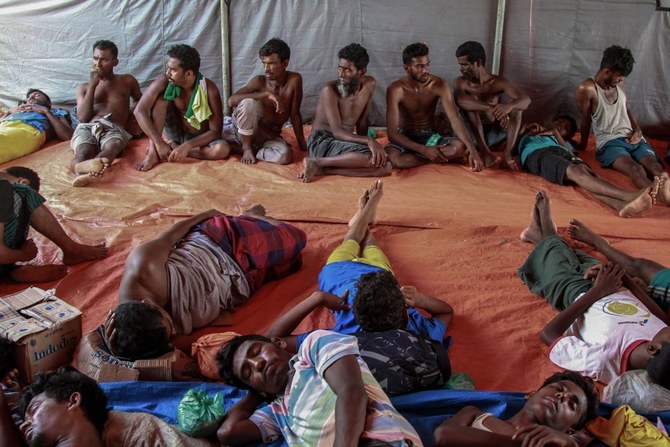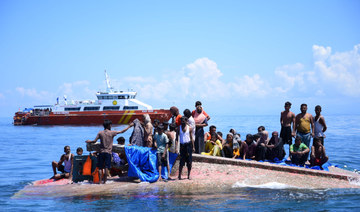DUBAI: Both during and after the recent takeover of Afghanistan, Taliban officials strenuously sought to project a responsible and tolerant image of the group, almost 20 years after its removal from power.
Addressing the news media on Aug. 18 in Kabul, Taliban spokesman Zabihullah Mujahid pledged that the new government would respect the rights of women and grant amnesty to those who had resisted them, while promising that Afghanistan would never again become a safe haven for terrorists.
His comments echoed those of Shahabuddin Delawar, a senior Taliban negotiator, who said in Moscow on July 9 that the group would ensure that women and girls have the right to work and education, provided that those rights do not contravene the tenets of Islam.
Yet memories of Taliban rule in Afghanistan before the US invasion of 2001 remain as a cautionary tale, through photos and videos of militants flogging defenseless women encased in burqas, kneeling in the dust.

From 1996 to 2001, strict gender segregation was enforced by the Taliban, an Islamic fundamentalist group that had filled the power vacuum in Afghanistan following a protracted, multisided civil war.
Once it had implemented its interpretation of Shariah, women were not allowed to leave their homes without a male relative, while girls over the age of seven were denied an education and often ended up being married off to much older men.
The system of gender apartheid instituted by the Taliban meant that women were required to wear the burqa every time they went out of the house. The garment, which fit tightly over the head and extended all the way to the ankles, made the Afghan woman almost formless and unidentifiable in public.
Those who defied the rules and moral norms faced harsh punishment, often involving public flogging. For more serious transgressions — such as adultery — the practice of stoning was commonplace.

Afghan women march with banners to protest the recent public execution of a young woman for alleged adultery, in Kabul. (AFP/File Photo)
Almost two decades later, Taliban officials such as Mujahid and Delawar, and spokesman Suhail Shaheen, are signaling that the group has smoothed its notoriously rough edges.
However, few Afghans are convinced, if the rush for seats on Western evacuation flights from Kabul airport is any indication. Fewer still are willing to speak openly about the issue, fearing reprisal.
“Everyone is waiting to see what will happen under the Taliban,” one Kabul resident told Arab News, speaking on condition of anonymity. “Women are going out of their homes now, but they are all wearing the hijab. Before it was different. Some wore it and others didn’t. Now they all wear it because they are afraid of the Taliban.”
Another Kabul-based woman, also speaking anonymously, said: “We don’t expect everything to be the same as it was before. There will be some change. We are waiting to see clarification on these policies issued by the Taliban.”
Many Afghans want to believe, ignoring their instincts, that the Taliban will be more moderate this time around. However, anecdotal reports of atrocities occurring across the country have kept the public on edge.
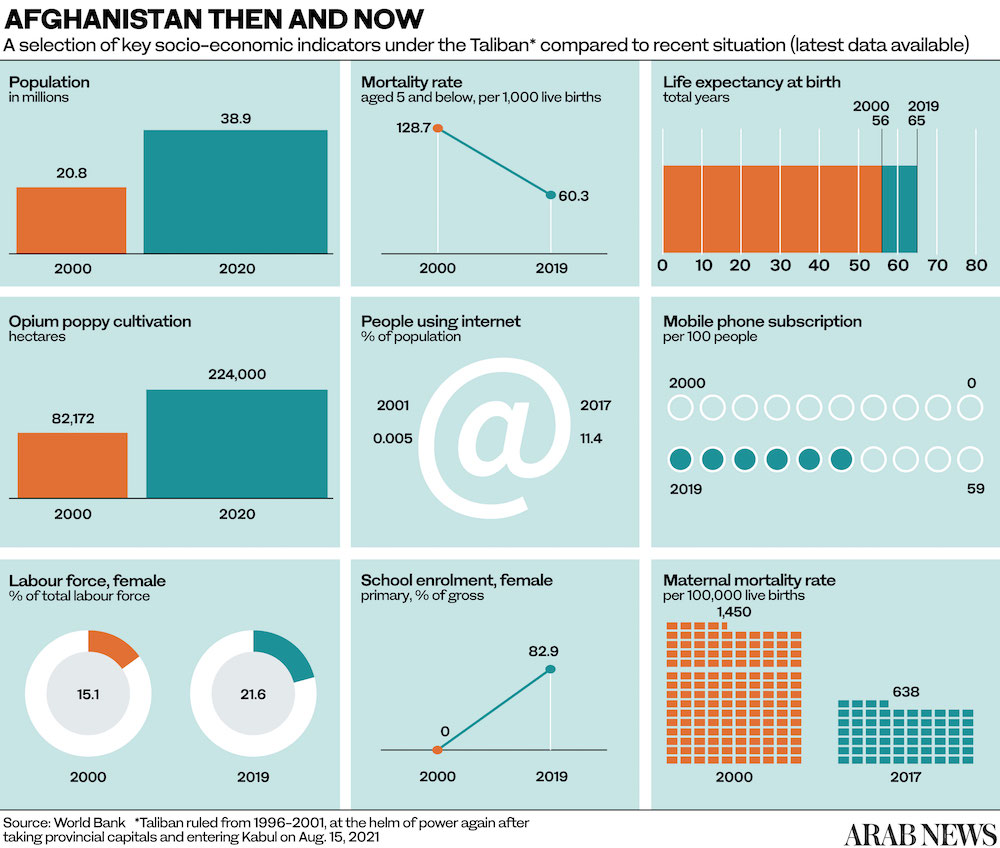
“There were rumors over the last week that single women outside of Kabul have been taken and married off,” a spokesperson for one organization working in Afghanistan told Arab News on condition of anonymity.
“The key thing to remember is not that the Taliban is saying one thing and doing another necessarily. The Taliban is not one body yet.”
Indeed, a statement on Tuesday from a Taliban spokesman declared that women should stay at home for the time being because some of their fighters have” not yet been taught how to properly behave.”
Masuda Sultan, an Afghan-US entrepreneur and human rights advocate, told Arab News: “It is not clear if this applies to all women or women in some positions.

Afghan women attend a work-place literacy course in Kabul in the 1980s when the country was ruled by the Mocow-backed Kabul communist government. During its 14 years rule, the communist regime provided vast opportunities for women to encourage their social participation in the otherwise strictly conservative Afghan society. (AFP/File Photo)
“Most women are not leaving their homes and are scared. People are being very careful. Recent news reports indicate the Taliban has recommended staying home for now. It’s like military rule now. They said women’s salaries would be paid but more training was needed for their own people.”
Women are not the only people in Afghanistan concerned about what happens next. Ethnic minorities, particularly the Hazara, a predominantly Shiite group concentrated in the country’s central mountainous region of Hazarajat, also faced persecution under the first Taliban regime.
Constituting about 10 to 20 percent of the population, the Hazara were relegated to the bottom rungs of the social order, which was topped by the Pashtun, an ethnicity from which the Taliban drew the bulk of its support.
Other ethnic groups — the Tajik, Uzbek, Turkmen, Baloch, Pashai, Nuristani, Gujjar, Arab, Brahui, Sadat, Kyrgyz and Pamiri peoples — are also unsure of where they stand.
FASTFACTS
* 80% - Proportion of recently displaced Afghans who are women and children.
* Rights monitors have called for inquiries into reported Taliban abuses.
* Afghan women and minorities fear past atrocities will be repeated.
The Hazara certainly have reason to be fearful again. After taking control of Ghazni province, Taliban militants killed nine Hazara men between July 4 and July 6 in the village of Mundarakht in Malistan district, according to human rights monitor Amnesty International.
Witnesses said that six of the men were shot and three were tortured to death. Human Rights Watch has urged the UN Human Rights Council to investigate similar reports of Taliban violence in the lead-up to the Aug. 15 fall of Kabul.
Afghans say that how the Taliban handles the rights of women and minorities going forward will depend very much on the kind of government that takes shape as the group tightens its grip on power.
“Even though the Taliban have taken over most of the country, they haven’t actually formalized a political agreement. At the same time they face governance challenges,” said Sultan.
“We need and want to see good policies on women and girls. The Taliban have issued statements stating women and girls will have rights within Shariah law. Many people have been taking a wait-and-see approach.”

Internally displaced Afghan women, who fled from the northern province due to battle between Taliban and Afghan security forces, gather to receive free food being distributed at Shahr-e-Naw Park in Kabul in August. (AFP)
When US forces conclude their scheduled withdrawal on Aug. 31, the many sources of international aid and finance that kept the Afghan economy afloat since 2001 are expected to dry up.
Taliban leaders face the prospect of an economic implosion with serious humanitarian implications unless they can quickly broker new trade deals or non-Western powers throw them a lifeline.
According to UNHCR estimates, about 80 percent of the roughly 550,000 people internally displaced in recent weeks are women and children. Up to a third of Afghans were already considered food insecure at the start of 2021. Now the country is grappling with its second drought in three years.
UN agencies have warned of widespread food shortages across Afghanistan as early as September without urgent intervention.
“Afghanistan is in the middle of a humanitarian crisis,” Sultan told Arab News. “There are 18 million people in need of emergency aid. The World Food Program said that they cannot get food into the country because Kabul is currently closed to commercial flights.”
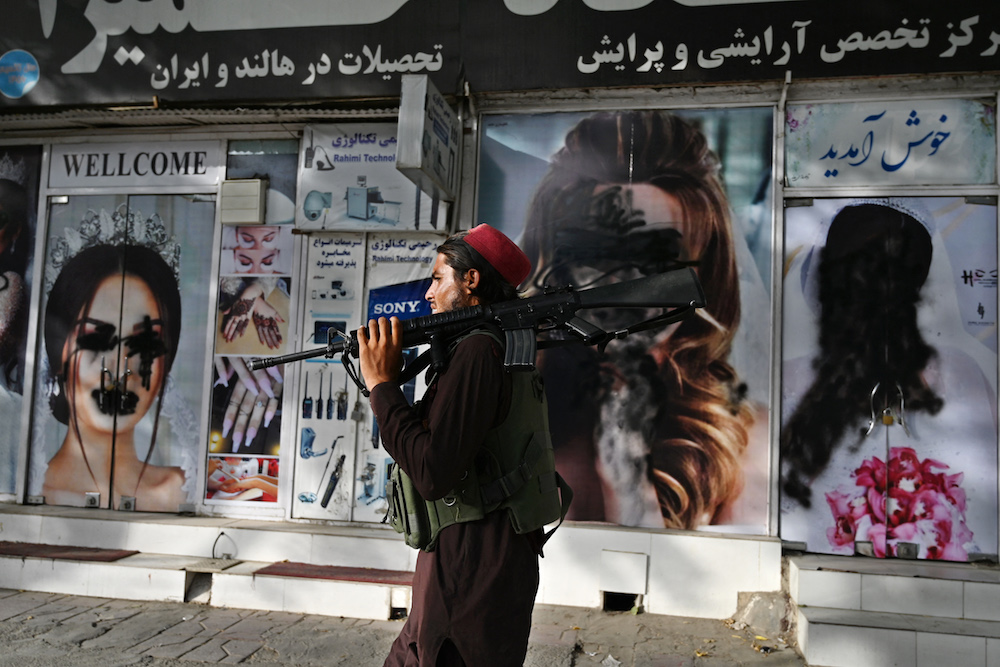
A Taliban fighter walks past a beauty salon with images of women defaced using spray paint in Shar-e-Naw in Kabul on August 18, 2021. (AFP)
For the past several weeks, the international community has given its undivided attention to the evacuation effort and chaos at Kabul airport. Less attention has been paid to the much bigger swath of the population that is unable or unwilling to leave.
“While the eyes of the world now are on the people being evacuated and the planes leaving, we need to get supplies in to help those who are left behind,” Richard Brennan, the World Health Organization’s regional emergency director, told Reuters.
The WHO has called for empty planes to be diverted to its warehouses in Dubai to collect supplies on their way to pick up evacuees. There are also plans for a “humanitarian air bridge,” Brennan added.
The general consensus is that the Taliban can still build goodwill among international donors by not impeding the evacuation process and by matching their reassuring words with actions.
“The Taliban said that people can go back to work, but the dust hasn’t settled yet,” said Sultan. “Everyone is still waiting to see what will happen.”
---------------
Twitter: @rebeccaaproctor





